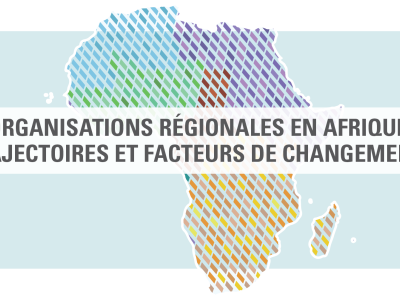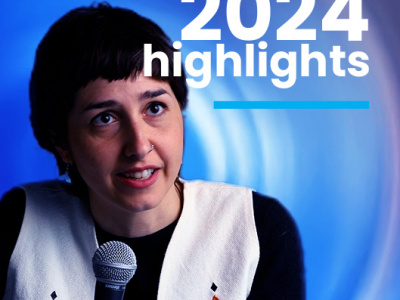
Aid for Trade – not just about aid, nor trade...
What's on this page
The fifth Global Aid for Trade review last week was good on people but not so great on content. Three things were missing from discussions at this jamboree: the setup of industrial policies that incentivate productive capabilities, thinking and working politically and the engagement of the private sector. Jamborees and their discontents The jamborees hosted by multilateral organization always instill mixed feelings. They’re great for meeting up with people working in the same area, for networking with new people and they sometimes take place in nice places (on the shores of Lake Geneva in this case). But they always carry the risk that one leaves with a sense of frustration at what is being discussed and how. The fifth Global Aid for Trade review last week was good on people but not so great on content. Previous AfT reviews brought (admittedly moderate) heated debates on how much new money was actually generated by the Aid for Trade initiative; how flows were being channelled and monitored; why prepaid cards are becoming more popular; what the money was being used for and what the impacts actually were; what could be learnt from experiences and what the future held for this relatively recent fad in a world of ‘innovative finance’ and ‘beyond aid’ –after all, AfT was only ‘born’ at the 2005 Hong Kong WTO Ministerial. This time though, it was showcase time. ‘Don’t rock the boat’ The theme was: facilitating trade to lower the costs to trade. While this is important, it also points to why discussions never got to more than tepid: there was little controversy about the role that costs play in inhibiting trade. But speculating and discussing further, some participants suggested that with the December WTO Ministerial coming up in Nairobi aimed at signing off the Trade Facilitation agreement, it was right to focus on how aid for trade could best support its implementation by developing countries. No one wants to rock the boat too much– there may also be money up for grabs. So instead we had multiple twelve-people panels(!), almost ALL talking about how important trade facilitation is, how important aid for trade is, what good work everyone is doing... Another participant suggested that the SDG frenzy and ‘financing for development’ were perhaps having an effect: too much self-criticism in the Aid for Trade community might undermine their chances in maintaining relevance at the Financing for Development discussions, so promoting the good news can only be good for more AfT! My failed wish list But even taking all that into account, three things were missing from discussions at this jamboree. Industrial policy: As ECDPM’s San Bilal mentioned in his article and as echoed at the conference by Stephen Karingi of UNECA, while trade facilitation is extremely important –and the costs incurred by firms and people due to time and cumbersome transit and transport systems in Sub-Saharan Africa are phenomenal – productive capabilities are also a major obstacle but were generally missing from discussions. A smooth one-stop border post is only of interest if it encourages investment, engaging with what one speaker mentioned as the “inter-connected cost structures” that surrounds efforts at trade facilitation (That said, mentioning ‘industrial policy’ at the WTO is maybe taboo…). Thinking and working politically: Related to the above is how to design, finance and implement reforms given the potential winners and losers and the political-economic circumstances they operate in. The Aid for Trade discussions seem to entirely avoid political economy considerations even though trade economists are well aware that trade liberalisation and other reforms affects different employment and production groups differently. As a seminal report from Teravaninthorn and Raballand of the World Bank finds, investments in lowering the costs of transport do not necessarily translate to the price of transport – the transport sector can be, and often is, a key rentier sector. This relates to the political connections they have but also the structure of the market they operate in. What then are the implications of AfT for transport sector reforms and the willingness of politicians to implement them? Ports are also key here, and the way ports function is likely to have a large impact on trade costs, regardless of all the other measures. It may be that trade facilitation measures like improving port efficiency reduces both formal and informal employment in the short-term. But while employment is a key government concern in most countries where AfT projects have an impact, this was barely mentioned as a concern. If ports are seen as a political cash cow, and the jobs connected to it are part of the political equilibrium, disruptions through reforms, technology or otherwise are likely to meet with resistance or undermining of the reform, altering the risks that politicians are therefore willing to take, potentially representing a stumbling block right from the start. Private sector engagement: Before leaving the WTO, Pascal Lamy suggested at the last AfT review that aid for trade was too narrow; that the conversation needed to move to investment for trade – linking the private sector engagement agenda with trade promotion. His points related to the broader ‘beyond aid’ rhetoric and the growing interest in linking aid with private sector dynamics, including investment, and what this could mean for boosting the opportunities created by trade. While this AfT review had a couple of side events around PPPs, there was very little on what it means that donors are engaging their own businesses for development; that development partners are now increasingly embracing profit as a basis for sustainable interventions; and that working with international firms in promoting trade and regional integration brings a whole new set of risks and opportunities… Towards a new AfT approach...in the EU at least? WIth the EU just starting the process of reviewing its 8-year old Aid for Trade Strategy, now is a good time to start thinking about some of these challenges. To be more meaningful, the Aid for Trade ‘community’ needs to really start thinking about how it can better link the multiple related other agendas and processes that rely on trade and market integration- whether at a local, national, regional or global level – for example CAADP, industrial policy processes, enterprise development strategies, economic diplomacy, corridor development… Beyond this there needs to be some re-thinking and discussion of the role of development partners and their AfT – are they just donors, diplomats or actually some kind of investment brokers? Where does development stop and economic diplomacy begin? And how far are development partners willing to go down these different paths towards genuinely using aid to promote trade and investment? But more fundamentally, there needs to be more discussion and learning on how policies to promote trade and regional integration (with or without aid) play out in the real world and how to learn from past experience. That would need a review that links AfT with PPPs of another sort: politics, power and people… Then we could move from showcasing to some genuinely meaningful discussion. The views expressed here are those of the author, and not necessarily those of ECDPM.




